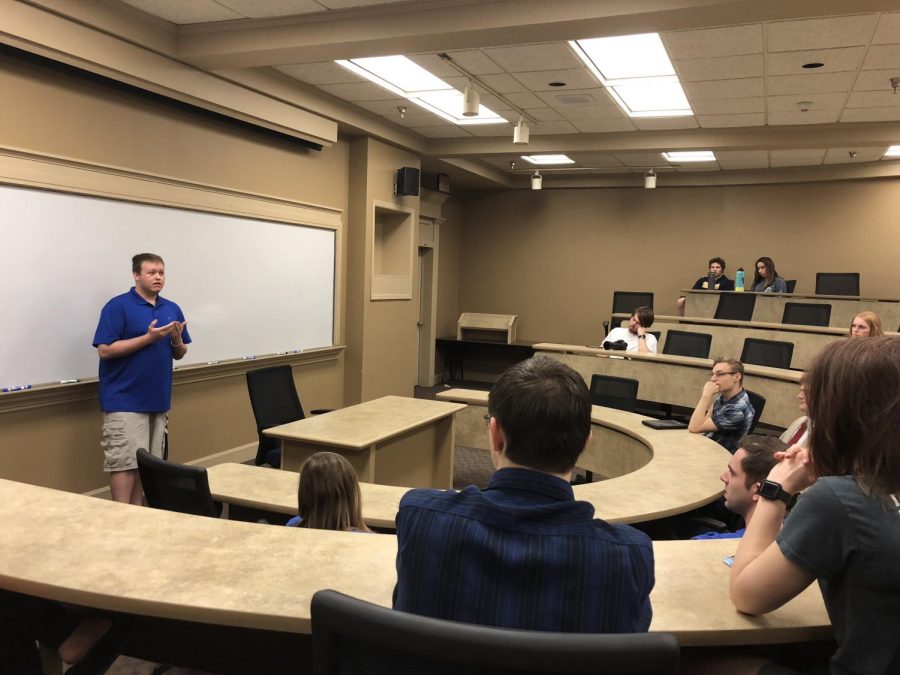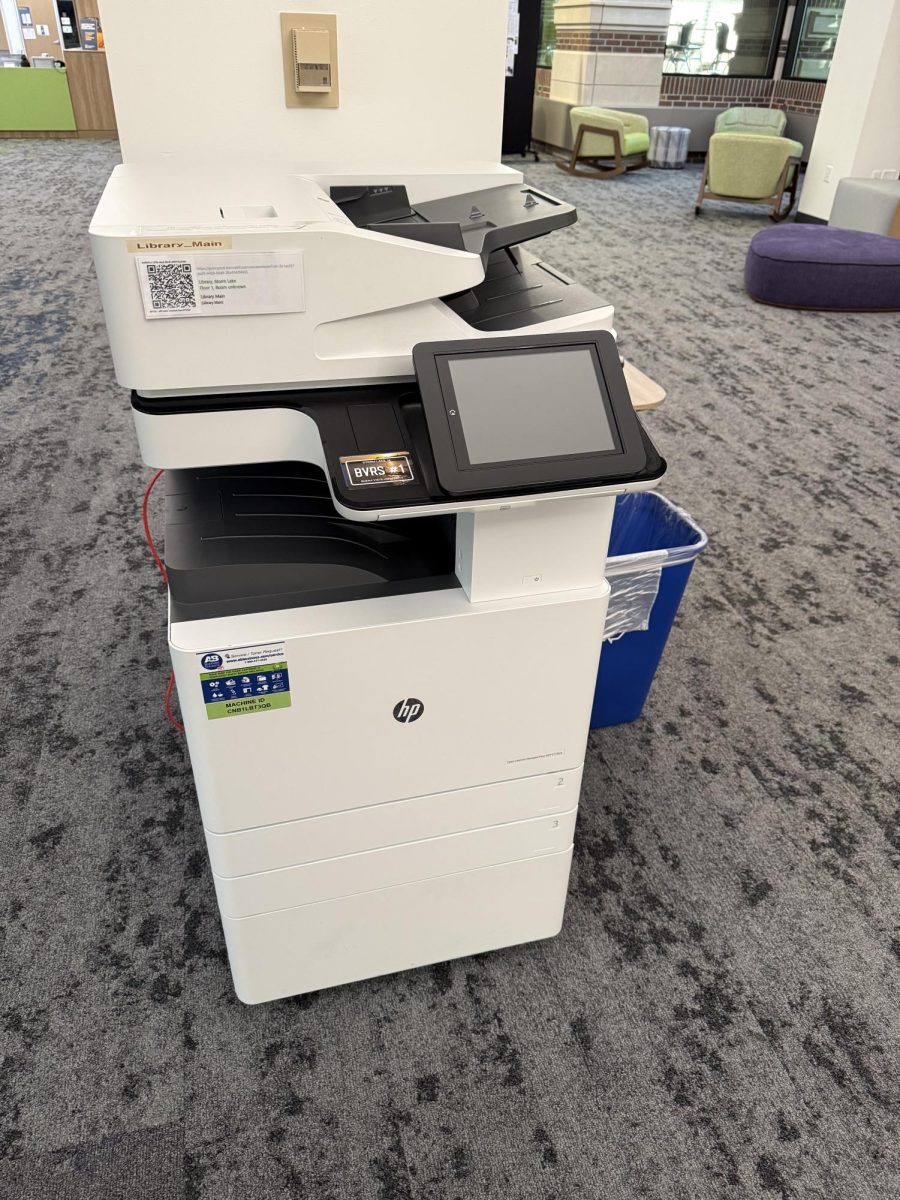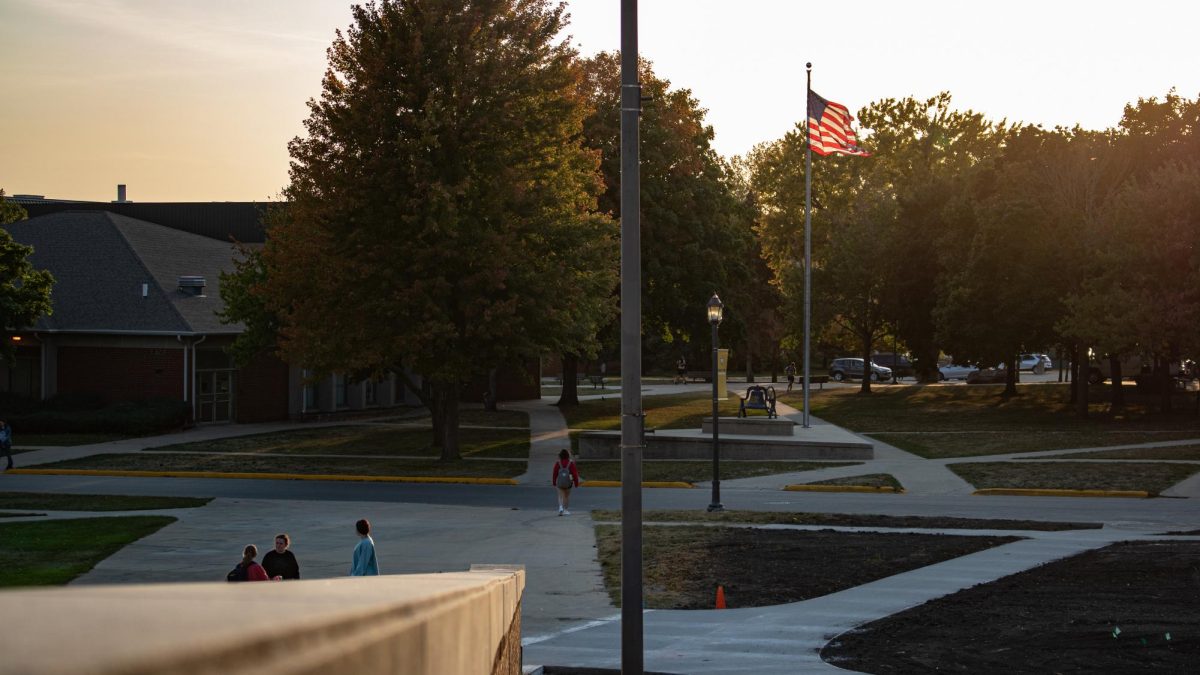BVU Holds Choose Blue Autism Awareness ACES
April 26, 2018
Buena Vista University (BVU) held an ACES event called Choose Blue for autism awareness in which there were several speakers who talked about their experiences with autism as they’ve grown up.
Outside of the room, there was a table of sensory activities that autistic people enjoy to help them focus or relax.
The session started with Corey McConnaughy introducing himself to the room and talking about his diagnoses of Asperger Syndrome.
Asperger Syndrome is a subtype of autism that affects socializing with others. People with Asperger Syndrome generally can’t distinguish social cues and have a hard time communicating with others.
McConnaughy expressed his difficulties with Asperger Syndrome.
“At first, I was that guy,” says McConnaughy. “I didn’t know if someone was being sarcastic.”
He discussed his day to day life and let people know that he was the same as everyone else, with a lot of the same kinds of interest in things.
“I was just like you guys; I loved playing video games and watching Disney movies, I was an active member of Cub Scouts and Boy Scouts,” says McConnaughy.
However, he dealt with some differences that weren’t quite like everyone else. He attended speech therapy and communication therapy to help him adjust and feel more comfortable socializing.
McConnaughy also talked about how he had trouble making and keeping friends. He felt that he always had “pseudo-friends” that were nice to his face but mean to him behind his back. He didn’t think that they were very genuine friends.
The next speaker, Jacob Amhoff shares his background in a musical family. He grew up knowing how to sing, dance, and act just like the rest of his family. Amhoff also tells people that he wants to be a voice actor and will often impersonate different characters’ voices. He demonstrated to everyone by impersonating Mickie Mouse and Mario, the video game character.
Amhoff wasn’t aware that he had Asperger Syndrome until he was nine years old. He struggled to keep friends in school. He didn’t understand why others didn’t want to be around him.
“Did I do something wrong, did I make you feel uncomfortable?” says Amhoff, in regards to having friends.
He questioned many of his interactions with people because he wasn’t sure what he had done wrong to make them act the way they did around him.
Amhoff discusses the perks of having Asperger Syndrome. According to him, many people with the syndrome are really gifted in one specific area of interest. They’ll oftentimes focus a lot of their time and energy in this one area.
Amhoff closes on this note with a positive remark.
“Austim and Aspergers don’t have to be a disability, it can be a great advtange. So take pride in what you have.”
Job Saunders was the third speaker at the event. He walks to the front of the room and says, “Hi, I’m Job.” Just plain and simple. He shares that he often walks up to people and introduces himself in this way, just because he wants to be friendly.
Saunders was younger when he was diagnosed with autism. He recalls that he was about five years old. His mom realized that he wasn’t able to talk like everybody else did and took a longer time to call her “mommy” or his dad “daddy.” He also tended to make up his own language when he was younger.
Saunders doesn’t feel like autism has held him back from pursuing a normal life.
“I didn’t really see it as something holding me back or having the dreams I had,” says Saunders.
He was told that he would always live in his parents’ basement, he wouldn’t be able to be responsible for himself and he would never live a normal life like everybody else. Saunders used this as fuel for his fire and made sure to prove that he could do anything he wanted to do. Saunders attends BVU, is involved in many things on campus, and lives on his own.
“I said no to the world,” says Saunders. “I was getting sick and tired of people telling me I can’t do this because that’s what I had been told my entire life.”
Saunders said that just because something is hard for him, doesn’t mean he can’t do it, it simply will take him a little more effort.
Like both McConnaughy and Amhoff, Saunders had some difficulties making friends in school. He was treated differently and ostracized from the group. He shared one experience about a girl he liked in grade school. He started forming a friendship with her throughout elementary and middle school before he was being told by others that the girl didn’t like him back. Saunders had gotten her number after some time, they talked and hung out, so it was hard for him to believe that this was true. After a little more time went on, Saunders began to wonder to what extent these rumors were true, so he asked her what she thought of him. She told him that he wasn’t going to like the answer, to which Saunders asked her to just be honest anyway. Saunders laughs and says he can still remember what she told him to this day. “You are too different.” He expresses how he started to believe this and was more aware of being treated like this by others as well.
“I felt like I wasn’t even human, I was something else,” says Saunders.
Saunders said that it’s difficult for him and others to talk about autism because they don’t want to separate themselves or be labeled or treated differently.
All three speakers told stories about how they had been called “retarded” among other harsh names throughout their time in school. McConnaughy shares his thoughts on these experiences.
“If it’s too hard to think before you speak, walk the mile,” says McConnaughy. “I have plenty of shoes you can use.”
All of the speakers agreed that people need to take the time, be patient, and treat them like humans. Because they’re just the same as everyone else.






